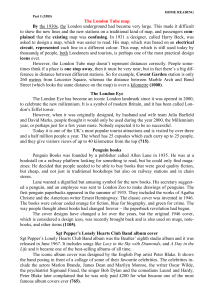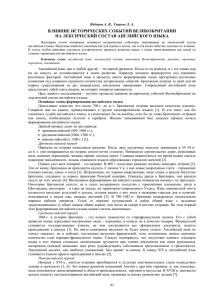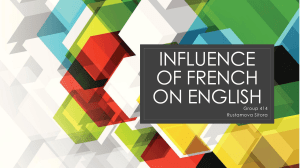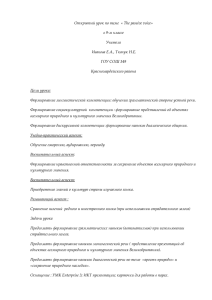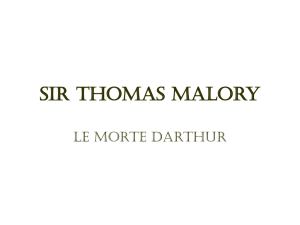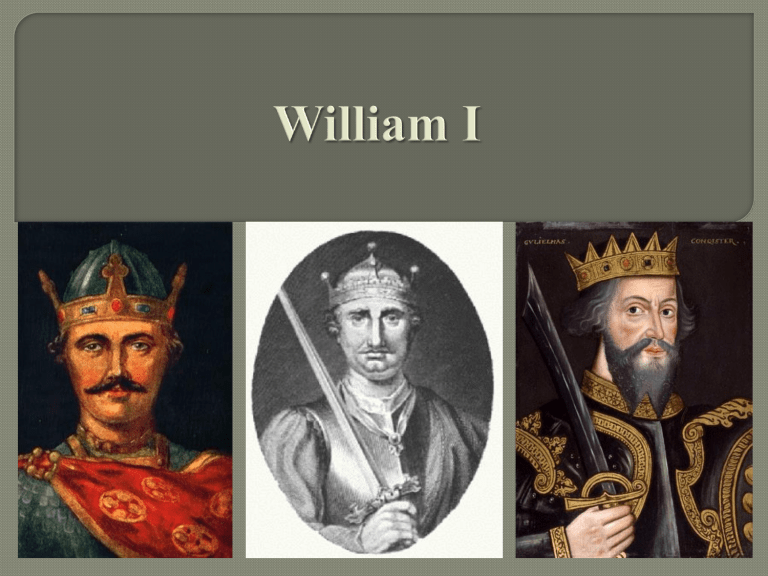
William I also known as William the Conqueror or William the Bastard was born in 1028 in the city of Falaise which was part of the Duchy of Normandy. His father was the powerful Robert I, Duke of Normandy, but his mother was the daughter of a local tanner. His parents weren't married, making William an illegitimate child. Despite being an illegitimate child, William was raised as the future Duke of Normandy. When William was seven years old, his father decided to go on a pilgrimage to Jerusalem. Since William was his only son, Robert assembled his nobles and had them swear that William would be his heir. When Robert died on his return trip from Jerusalem, William was made Duke of Normandy. William was crowned Duke of Normandy in 1035. Because he was only seven years old and an illegitimate child, many people challenged his right to rule as Duke. Over the next several years there were many attempts on William's life. For a time his great-uncle, the Archbishop Robert, looked after William. After the archbishop died, it was mostly King Henry I of France's support that helped William to keep his title. It was when William was older, around twenty, that he nearly lost the title to his cousin, Guy of Burgundy. Guy had gathered the support of a number of nobles and formed an army to defeat William. William met Guy at the Battle of Val-es-Dunes in 1047. There he defeated Guy and began to establish his control over Normandy. In 1050 William married Matilda of Flanders. This was a political marriage that allied William with the powerful duchy of Flanders. Matilda and William would have four sons and five daughters. The King of England, Edward the Confessor, died in 1066. He did not leave any heirs to the throne, but William was related to the king through Edward's uncle, Richard II. William also claimed that Edward had promised him the crown. However, there were other men who also claimed the crown of England. One of them was the most powerful noble in England at the time, Harold Godwinson. The people of England wanted Harold to be king and crowned him King Harold II on January 6, 1066, the day after King Edward died. Another man who claimed the English throne was King Hardrada of Norway. When King Hardrada of Norway invaded England and King Harold II went to meet him in battle, William saw his chance. He gathered an army and crossed the English Channel making camp near the city of Hastings. After King Harold II defeated the Norwegian invaders, he turned south to face William. However, William was ready for battle. William had brought archers and heavily armored cavalry called knights. Harold's foot soldiers were no match for William's forces and William won the battle and King Harold II was killed by an arrow. William continued to march across England and eventually captured the city of London. Shortly after, on December 25, 1066, William was crowned king of England. William spent the first several years of his reign putting down revolts. At one point William became so angry with the revolts in Northern England that he ordered much of the countryside destroyed. His army burnt farms, destroyed food, and killed livestock throughout the area. This act became known as the "Harrying of the North" and caused the death of at least 100,000 people. One of William's most lasting legacies was his castle building. He built castles throughout England in order to maintain control. He built Colchester, Corfe, Hastings, Stafford and many more castles. Perhaps the most famous castle William built is the White Tower of the Tower of London. Colchester Castle Corfe Castle Hastings Castle In 1085, William ordered a full survey of the landholdings of all of England. He had men go around the land and record who owned the land and all the property they had including such things as livestock, farm equipment, and mills. This information was all put into a single book called the Domesday Book. William died while leading a battle in Northern France in 1087. His oldest son Robert Curthose became Duke of Normandy and his second son William II became king of England.

